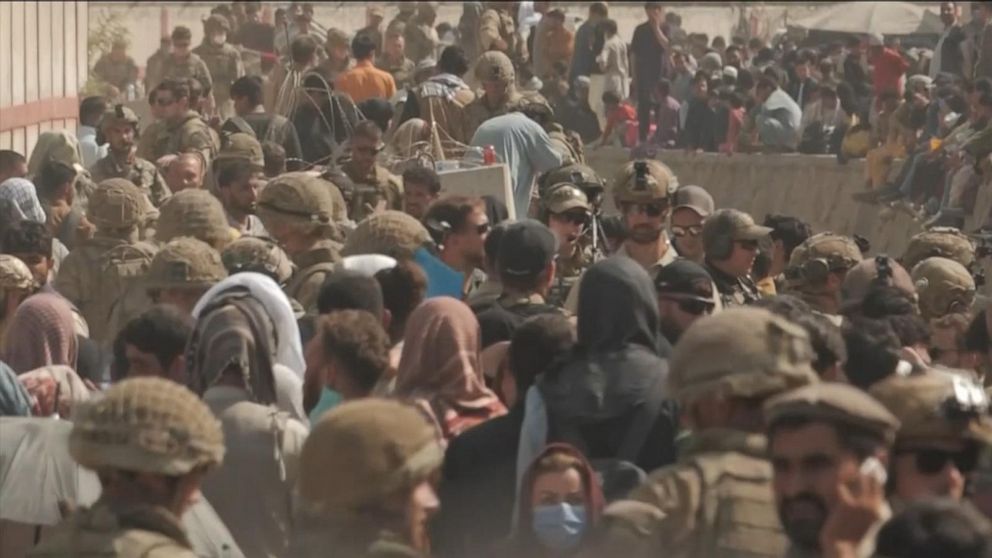The Reality of Aid Network statement on the recent developments in Afghanistan
Download the Spanish translation here.
Following the collapse of the Afghan government last August 15, 2021, the Reality of Aid expresses deep concern over the human rights situation in the country, and extends solidarity to the Afghan people’s decades-long struggle against conflict and wars. Despite decades of military assistance and billions of dollars in aid, the fall of Kabul and the takeover of Taliban has put into scrutiny the gaps in response and the failure of the prevalent development and peace-building approach in Afghanistan and other conflict-affected and fragile countries.
For example, the U.S. invasion of Afghanistan in 2001[1], was a flashpoint in history that led to one of the greatest humanitarian crises of the time. From 2001 to 2020, U.S. foreign aid to Afghanistan meant to fight the Taliban insurgency and fund reconstruction has reached $978 billion including expenses channeled through Pakistan which the U.S. used as a base for Afghan-related operations[2]. In 2019 alone, the conflict-torn country received $4.9 billion accounting for 7% of all U.S. foreign aid that year. Despite the urgent need for economic assistance and humanitarian response in Afghanistan, $3.9 billion or an overwhelming 80% of total U.S. aid given to the country was provided for military and security purposes[3]. In addition, the United Kingdom and Germany – two of the countries next to the U.S. with most foreign troops stationed in Afghanistan – spent an estimated $30 billion and $19 billion respectively over the course of the 20-year war[4].
Despite the human and material costs to the Afghan war, efforts at peace-building have indubitably failed. 2020 saw the first promising series of negotiations among parties to the Afghan conflict to finally put an end to the war. However, fighting between Afghan government forces, the Taliban and subsequent air strikes deployed by the U.S. only escalated the conflict[5].
We are one with civil society organizations (CSOs) in Afghanistan calling for the protection of civic space and rights including most especially women and girls. We welcome the prospect of the International Criminal Court’s (ICC) open investigation into Afghanistan and urge all parties involved in the conflict to cooperate fully including both Taliban and U.S. forces.
At the same time, we demand accountability from donor countries for decades of misplaced priorities in foreign assistance and misguided military interventions in the region. As of writing, Afghan CSOs are mobilizing to respond to the crisis with the meager resources they have at their disposal. Long-term support for these organizations would be crucial in ensuring the most sustainable and equitable way moving forward. As frontliners in humanitarian response and development, local CSOs have a crucial role to play in the re-building of Afghanistan and should therefore be protected in their efforts to address the urgent needs of the Afghan people.
In line with this, we call for:
- An immediate cessation of violence and military actions from all parties to the Afghan armed conflict. In addition, reparative measures must be implemented to pursue just and lasting peace in the region including accountability of both U.S. and Taliban forces to human rights violations in full cooperation with the ICC’s open investigation on the grave abuses of combatants in Afghanistan.
- Neighboring states and other countries to keep their borders open and increase their quotas to receive asylum seekers and refugees from Afghanistan while ensuring adequate protection for internally displaced persons.
- The Taliban and its regional allies to allow full and free access of humanitarian aid as the needs for emergency assistance grows exponentially by the day. Local humanitarian organizations and UN agencies still present in Afghanistan must be allowed to continue their work in providing life-saving support.
- The donor community to support CSOs especially local Afghan organizations working on the ground to ensure the safety and protection of women, civilians, journalists, and entire communities and human rights defenders in the country.
- The donor community to accelerate their efforts to meet their Official Development Assistance (ODA) commitments to fragile and conflict-affected states while ensuring the cessation of foreign assistance focused on donor-driven security and geopolitical interests, and instead channel aid to support health, education and other basic social services that genuinely address people’s needs.
- Development cooperation providers to review existing humanitarian, development and peace intervention programmes in Afghanistan to properly address the roots of the conflict and implement a people-centred peacebuilding and conflict resolution strategy aligned with the triple nexus approach.
The Afghan crisis reveals the severe shortcomings of the global development community in keeping with its commitment to leave no one behind. In this time of urgent need, we must not abandon the Afghan people in their continuing struggle against conflict and wars.
[1] UN Security Council (2001). Resolution 1368 adopted by the Security Council at its 4370th meeting on 12 September 2021. Retrieved from: https://digitallibrary.un.org/record/448051?ln=es
[2] Reality Check Team (August 17, 2021). Afghanistan: What has the conflict cost the US and its allies? BBC News. Retrieved from: https://www.bbc.com/news/world-47391821
[3] United States Agency for International Development (USAID) Foreign Aid Explorer. Retrieved from: https://foreignassistance.gov/
[4] Ibid.
[5] Human Rights Watch (2020). Afghanistan: Events of 2020. Retrieved from: https://www.hrw.org/world-report/2021/country-chapters/afghanistan

